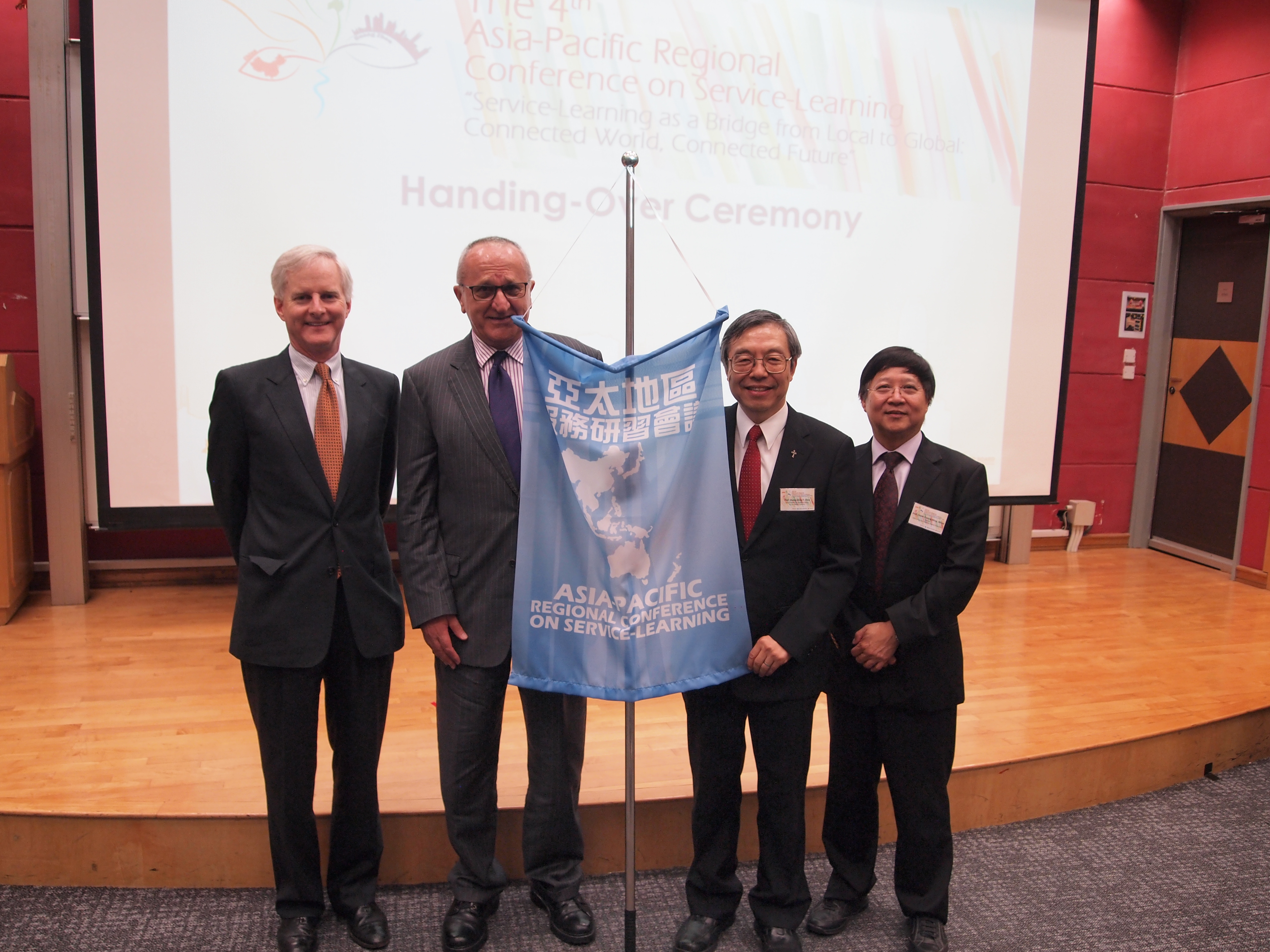Location
MD202, Paul Cardinal Shen Medical Building, Fu Jen University
Start Date
29-5-2015 1:30 PM
End Date
29-5-2015 2:40 PM
Description
A service-learning project undertaken by my Children's Literature students was mentoring Grades 4-5 pupils (in cooperation with homeroom advisers) from selected Dumaguete City Public Elementary Schools in oral storytelling. The project was designed for student s to apply the principles in oral storytelling they learned in class, and to let them and the pupils gather local oral narratives from which they could draw traditional beliefs and practices for discussion in the context of Filipino identity, values, worldview as well as relevance in their everyday realities. It further aimed to heighten both sets of participants' awareness and appreciation of their storytelling tradition as they listened to the local folk stories and historical narratives. Each team (composed of 2 university students and 3 -4 elementary school kids) was tasked to gather 3-5 oral lores from acknowledged storytellers/historians in their community to be retold in stylized oral storytelling then discussed during the service-learning sessions. For authenticity and ease of delivery, the Cebuano language was used. All the excellent storytellers from each school would eventually be selected to join a planned inter-school oral storytelling in Cebuano contest.
Based on data gathered, ghost stories and malevolent spirit narratives were most favored by the informants followed by stories about how local places acquired their names or legends of focal places in the community. Narratives about life in the olden days also abounded. The compiled stories and narratives, especially the supernatural ones, had all the right ingredients for good oral storytelling. The pupils enthusiastically participated in the storytelling activity and even engaged their student-mentors in quite critical discussions of certain issues gleaned from the stories such as the prevalence of the "white lady" in local ghost stories and the feeling of shame an d pain in having a womanizing father.
Local memory and oral storytelling projects, especially in the elementary curriculum, should be encouraged to give children a sense of ownership of their local history and folklore, which could translate to a deeper sense of rootedness in the locality and, ultimately, would make them more involved community members.
Recommended Citation
Gomez-Soluta, A. (2015, May). Service-learning in children's literature: Teaching young Filipino learners local narratives and oral storytelling tradition. Paper presented at the 5th Asia-Pacific Regional Conference on Service-Learning: Love Journey: Community Engagement through Service-Learning, Fu Jen Catholic University, Taiwan.
Included in
Service-learning in children's literature : teaching young Filipino learners local narratives and oral storytelling tradition
MD202, Paul Cardinal Shen Medical Building, Fu Jen University
A service-learning project undertaken by my Children's Literature students was mentoring Grades 4-5 pupils (in cooperation with homeroom advisers) from selected Dumaguete City Public Elementary Schools in oral storytelling. The project was designed for student s to apply the principles in oral storytelling they learned in class, and to let them and the pupils gather local oral narratives from which they could draw traditional beliefs and practices for discussion in the context of Filipino identity, values, worldview as well as relevance in their everyday realities. It further aimed to heighten both sets of participants' awareness and appreciation of their storytelling tradition as they listened to the local folk stories and historical narratives. Each team (composed of 2 university students and 3 -4 elementary school kids) was tasked to gather 3-5 oral lores from acknowledged storytellers/historians in their community to be retold in stylized oral storytelling then discussed during the service-learning sessions. For authenticity and ease of delivery, the Cebuano language was used. All the excellent storytellers from each school would eventually be selected to join a planned inter-school oral storytelling in Cebuano contest.
Based on data gathered, ghost stories and malevolent spirit narratives were most favored by the informants followed by stories about how local places acquired their names or legends of focal places in the community. Narratives about life in the olden days also abounded. The compiled stories and narratives, especially the supernatural ones, had all the right ingredients for good oral storytelling. The pupils enthusiastically participated in the storytelling activity and even engaged their student-mentors in quite critical discussions of certain issues gleaned from the stories such as the prevalence of the "white lady" in local ghost stories and the feeling of shame an d pain in having a womanizing father.
Local memory and oral storytelling projects, especially in the elementary curriculum, should be encouraged to give children a sense of ownership of their local history and folklore, which could translate to a deeper sense of rootedness in the locality and, ultimately, would make them more involved community members.
